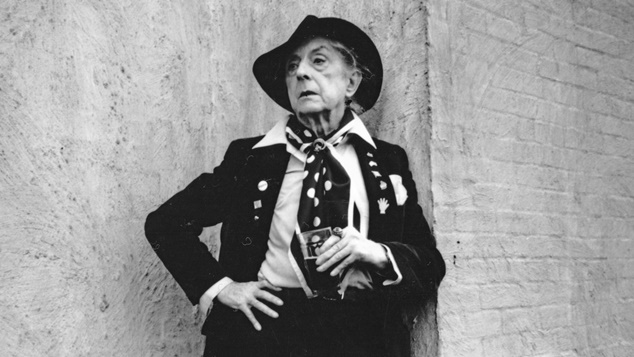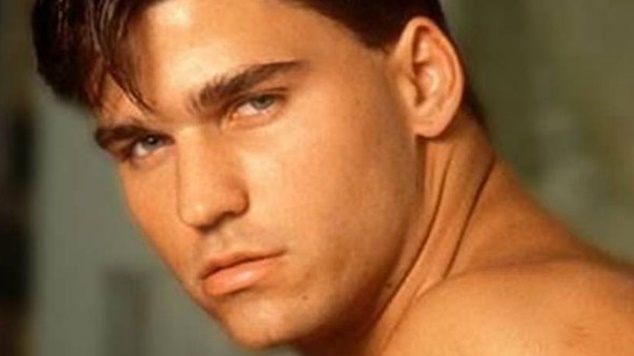Quentin Crisp died on this day in 1999
Sting wrote a song about him, a film about his life made John Hurt a star, and he had a memorable turn opposite Tilda Swinton in Orlando. Today we remember the marvelously caustic Quentin Crisp.
Born Denis Pratt in the town of Sutton, Surrey in 1908, he changed his name to Quentin Crisp when he arrived in London in the 1930’s aged in early 20’s.
He began painting nails, dying his hair a vivid crimson colour, and dressing effeminately. He worked as a life model for artists. He applied to join the army during World War II but was turned away because of his “sexual perversion.”

Crisp’s documentation his life working as life model and living as an openly gay effeminate man began with his first autobiography The Naked Civil Servant.
In 1976 the first volume of his autobiography was adapted for television, the program made a star of both actor John Hurt and the man he was portraying.
Crisp soon developed a one man show, which he toured around the United Kingdom and also took to New York. In 1981 he relocated to the Big Apple where he lived for the remainder of his life.
In New York, the raconteur famously had his phone number publicly listed, and would chat to anyone who called him, he often accepted dinner invitations from complete strangers – as long as they agreed to pay the bill.
Sting wrote the song An Englishman in New York about Crisp and he appeared in the music video for the track. Sting said the song was a little about himself, and a lot about Crisp – who he described as a personal hero. Boy George also listed Crisp as a teenage inspiration his his autobiography Take It Like a Man.
In the 1990’s Crisp appeared in several films, playing Queen Elizabeth in Sally Potter’s Orlando, he also appeared in the AIDS drama Philadelphia and To Wong Foo, Thanks for Everything, Julie Newmar. Alongside his autobiography he also published a series of book on modern manners.
In 1993 Britain’s Channel 4 broadcast Crisp’s Christmas Message as an alternative to the annual speech form Queen Elizabeth II.
Throughout his life the provocative author often made comments that upset other members of the LGBTI community, he was criticised for saying AIDS was a fad, and homosexuality was a disease.
Crisp passed away on November 21, 1999, he was 90 when he died of a heart attack.
In 2017 the third and final installment of his memoirs were published. The Last Word was written by Crisp with the help of his best friend, Phillip Ward, who tape-recorded and later transcribed Quentin’s words between 1997-1999.

Remembering Joey Stefano
Adult film star Joey Stefano died on this day in 1994. He’d found fame as in the adult film industry as a “hungry bottom” and he quickly became a top selling performer in the era of VHS.
Born Nicholas Anthony Iacona Jr, he grew up in Chester, Pennsylvania. When his father died when he was just 15 he struggled with substance abuse. He found success in films after completing a six month substance abuse program.
Stefano stood out from the other adult film performers of his time. He appeared as a model in Madonna’s Sex book, and author Charles Isherwood wrote a biography of his life titled Wonder Bread and Ecstasy.
Over his five year career appeared in 58 gay adult films, two of Madonna music videos as well as her Sex book, and was a popular burlesque performer at New York’s Gaiety Theater. Controversially Stefano ‘outed’ media mogul David Geffen during an interview in 1990.
Sadly he relapsed into drug use and was found dead in motel room in Hollywood in 1994. The coroner determined his death was caused by a speedball overdose, a mixture of cocaine, heroin, morphine and ketamine was found in in system.
Aside from his life being documented in the book by Isherwood, British celebrity photographer David Bret published a biography about Stefano in 2015. He was also the subject of a play Homme Fatale: The Fast Life and Slow Death of Joey Stefano, which was by Australian playwright Barry Lowe.
The play was performed in Perth at the 2000 Perth Fringe Festival.




